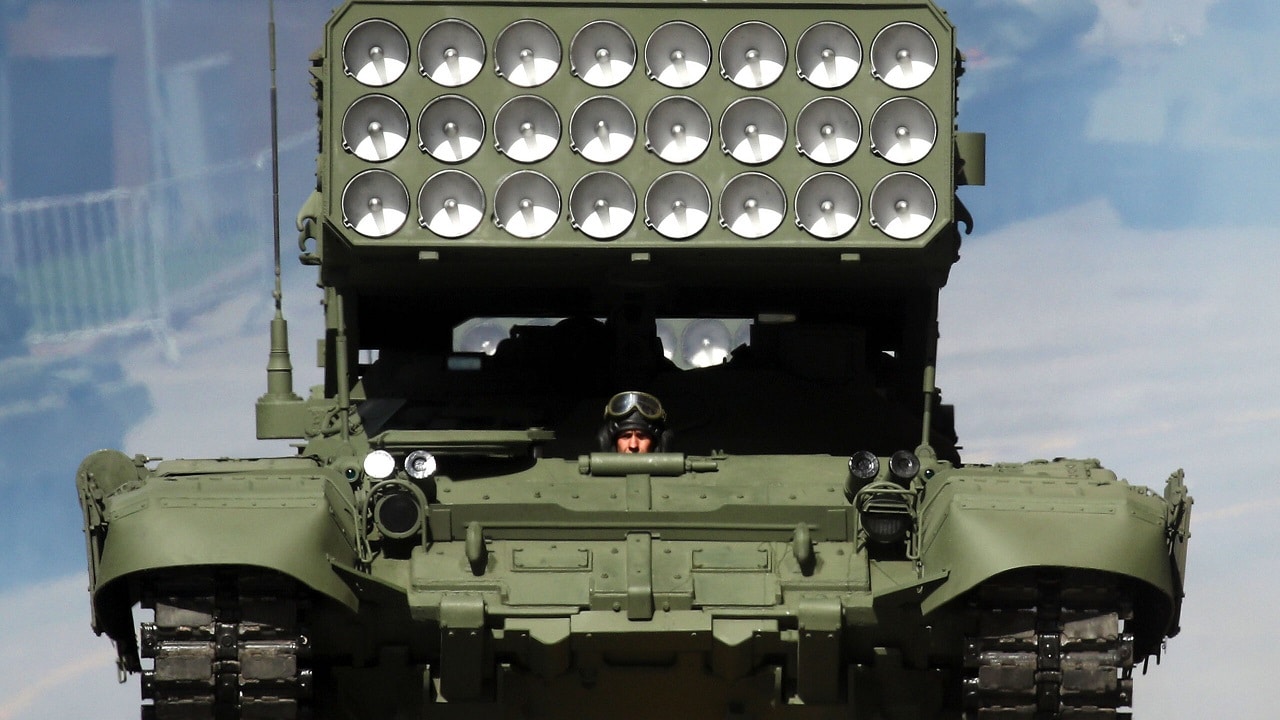The political stakes of the Russia-Ukraine War are about to get very high. If neither side can prevail in 2023, the outcome of the American election may well have a decisive effect on the course of the war. Given the likely contrast between the Democratic and Republican nominees it’s certainly possible that the war will become a major campaign issue. If it does, both Ukraine and Russia have every incentive to lean to one side in the 2024 election. The war will be fought on the battlefields of eastern Ukraine, but it very well might be won in the American voting box.
(Subscribe to 19FortyFive‘s New YouTube Channel here.)
Note: This Is Part II of a Two-Part Series. Read Part I Here.
The stakes are enormous, to the extent that both Ukraine and Russia might be forced to undertake dangerous steps in order to affect the US political situation. If Joe Biden remains President, he will have at his disposal an immense array of tools to aid the Ukrainian war effort and prevent Kyiv’s collapse, even if Republicans make gains in the House and Senate. Russia will at best face another two years of bloody, brutal conflict in Ukraine with little hope of respite. If Donald Trump or another like-minded Republican wins the White House, Ukraine could face a rapid curtailment of aid that would force it to find an accommodation with Russia, almost certainly including territorial cessions and probably also political and diplomatic concessions that might well endanger Kyiv’s democracy. For both the Putin and Zelenskyy governments, the question of the US election is very nearly existential.
Ukraine: Competing Tasks on the Battlefield
Ukraine will want to demonstrate two contradictory facts: First, that it continues to need extensive US support, and second that it can win the war with that support. The Ukrainian armed forces will come under immense pressure to demonstrate significant results during the critical stretches of the 2024 campaign. These kinds of successes would offer effectively free publicity for President Biden’s re-election campaign, as well as embarrassing Donald Trump. But obviously the political stakes could also encourage Ukraine to undertake risks that it would otherwise prefer to avoid.
For Russia the incentives are also straightforward. Assuming that Russia has not decisively defeated Ukraine by the summer and fall of 2024, Russia’s military task will be to convince the American electorate that Ukraine cannot win and that pouring more resources into the cause would be pointless. President Trump and other Republicans have already jumped on this bandwagon, and primed their audiences to believe that Russia cannot be defeated on the battlefield. Russia can win through exhaustion by demonstrating that Ukraine cannot decisively puncture its defense lines, and by continuing to inflict costly damage on the Ukrainian economy and military through an aggressive campaign of drone and missile strikes. Russia already has a fifth of Ukraine; if nothing changes, Moscow “wins,” at least in the sense of controlling the political message.
Making the Case
Both Kyiv and Moscow have more direct means of affecting the US election. President Volodomyr Zelenskyy remains popular in the United States, although it’s probably worth asking whether he’s in danger of reaching the point of media saturation. Ukraine’s impressive public relations establishment will undoubtedly do its best to depict Ukraine’s peril and Ukrainian heroism throughout the final months of the Presidential election. There can be little question that Ukraine will put a full court press on American media as the election grows closer. As discussed earlier, however, Americans often manage to put domestic policy well ahead of foreign policy when voting for Congress and the Presidency.
Moscow has a different set of tools. It is unlikely that anyone believes that a speech by Vladimir Putin would enhance Trump’s electoral prospects; Russia remains toxic in American politics even if Ukraine isn’t universally popular. Instead, Russia can rely on the sort of intervention it conducted in 2016, and that it has conducted in many elections world-wide. This includes cyber-attacks and hacking, but more importantly the development of propaganda narratives that may affect critical slices of the US electorate in important states. The evidence doesn’t show that such efforts had a decisive impact in 2016, but from the Russian point of view every little bit might help.
What Will Happen?
To be sure, plenty of analysts of the war already believe that it has cemented into a stalemate that neither Ukraine nor Russia will be able to break in the near future. Moreover, regardless of the sympathies of analysts towards either Ukraine or Russia, we should be extremely cautious about allowing those sympathies to color our analysis. If Ukraine is losing the world is not well-served by analyses that falsely claim Ukraine is winning, even if describing reality would tend to benefit Candidate Trump or President Biden.
At the same time, we cannot pretend the politics away. The US election may be the single most important battlefield of the Russia-Ukraine War in 2024. We can expect that both sides will be prepared to bleed in order to make their respective cases.
A 19FortyFive Contributing Editor, Dr. Robert Farley has taught security and diplomacy courses at the Patterson School since 2005. He received his BS from the University of Oregon in 1997, and his Ph. D. from the University of Washington in 2004. Dr. Farley is the author of Grounded: The Case for Abolishing the United States Air Force (University Press of Kentucky, 2014), the Battleship Book (Wildside, 2016), Patents for Power: Intellectual Property Law and the Diffusion of Military Technology (University of Chicago, 2020), and most recently Waging War with Gold: National Security and the Finance Domain Across the Ages (Lynne Rienner, 2023). He has contributed extensively to a number of journals and magazines, including the National Interest, the Diplomat: APAC, World Politics Review, and the American Prospect. Dr. Farley is also a founder and senior editor of Lawyers, Guns and Money.

